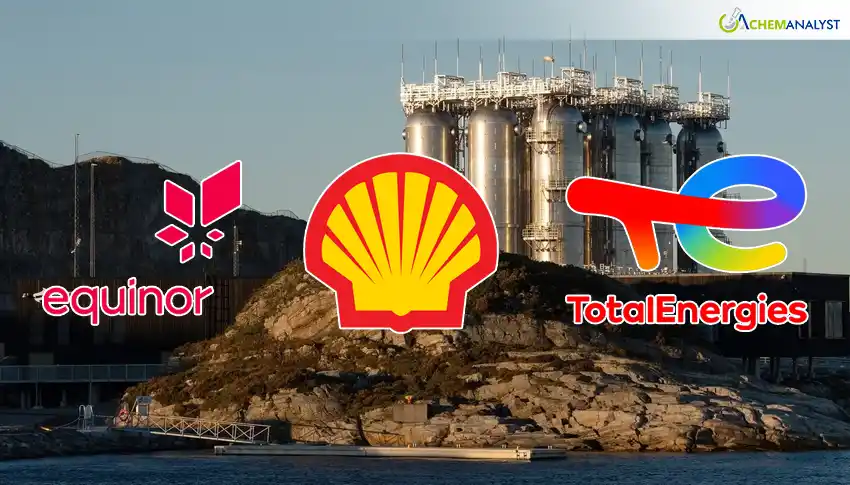Welcome To ChemAnalyst

The world’s first commercial CO2 transport and storage facility is now operational, successfully injecting carbon dioxide into a reservoir deep beneath the North Sea.
The Northern Lights Joint Venture, a partnership between Equinor, Shell, and TotalEnergies, has successfully injected its first volumes of CO2 into the Aurora reservoir, located 2,600 meters below the seabed of the North Sea. This pivotal moment marks the completion of the project’s Phase 1 development and the beginning of commercial operations for what is being hailed as the world’s first third-party CO2 transport and storage facility.
The process involves CO2 captured at Heidelberg Materials' cement factory in Brevik, Norway. The gas is liquefied and transported by specially designed ships to the onshore receiving terminal at Øygarden. From there, it is offloaded and sent through a 100-kilometer pipeline before being injected for permanent storage in the subsea reservoir.
Equinor’s CEO, Anders Opedal, described the event as a “major milestone.” “This demonstrates the viability of carbon capture, transport and storage as a scalable industry,” he stated. “With the support from the Norwegian government and in close collaboration with our partners, we have successfully transformed this project from concept to reality.”
The Northern Lights project is a key component of the Norwegian government’s full-scale carbon capture and storage initiative, known as Longship. The government provided significant financial support for Phase 1, covering approximately 80% of the costs. Equinor, acting as the Technical Service Provider, was responsible for the construction and will now manage the operational aspects of the facility.
Irene Rummelhoff, Executive Vice President of MMP in Equinor, emphasized the collaborative nature of the project. “Lifting new value chains like CO2 capture, transport and storage requires collaboration and effort across the value chain - from governments, industry and customers,” she said. “With Northern Lights in operation, we have proven that this is possible.”
Phase 1 has an initial capacity of 1.5 million tonnes of CO2 per year (mtpa), which is already fully booked. The project’s owners have already committed to a Phase 2 expansion, which will increase the transport and storage capacity to a minimum of 5 mtpa. This expansion was made possible by a new agreement to store up to 900,000 tonnes of CO2 annually for Stockholm Exergi and is supported by a €131 million grant from the EU's Connecting Europe Facility for Energy (CEF Energy) funding scheme.
The development of Phase 2 is well underway, building on existing infrastructure with the addition of new onshore storage tanks, a new jetty, and more injection wells. The delivery of nine new CO2 storage tanks to the Øygarden site this summer is a key step in this expansion.
We use cookies to deliver the best possible experience on our website. To learn more, visit our Privacy Policy. By continuing to use this site or by closing this box, you consent to our use of cookies. More info.
